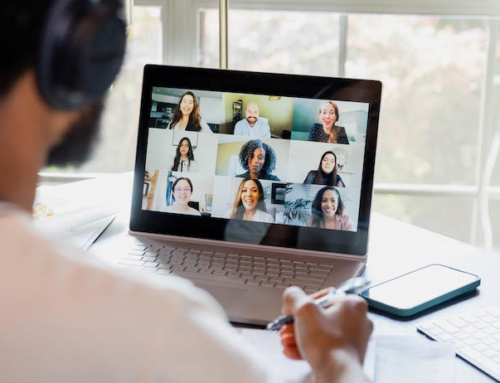Computer Skills in the Workplace

Technology is progressing faster than ever and changing how we live, learn, and communicate. It also has a substantial impact on the workforce. Computer Skills refer to the ability the ability to use technology safely to find and evaluate information, create content, and effectively collaborate and communicate. As the world becomes increasingly digital, computer and Internet skills are essential to secure and maintain employment.
This may be a challenge for individuals returning to the community after incarceration. Whether you’ve been incarcerated for one year or twenty, you’ll likely encounter new technology upon release. Fortunately, many free online resources are available to learn basic digital literacy skills.
How Do Computer Skills Impact Finding a Job?
Today’s job hunt is primarily done online through job search engines such as Indeed, and Honest Jobs is one dedicated to individuals with a criminal record. If you are familiar with job boards, you should be able to grasp this method pretty quickly. Basic computer skills will help you search for jobs, create a resume, apply for positions, and communicate via email or text message.
Before you begin your job search, set up an email address so potential employers can reach you. For more information and helpful tips, visit our Get Started page.
What Are the Most Important Computer Skills to Learn?
It’s difficult to determine what digital technology and specific digital skills to focus on, especially if you are a beginner. While most jobs require a basic level of computer skills, each occupation has different requirements, as illustrated in the chart below.

Our resume writing tool is a great resource to help you identify the technical skills needed to fulfill the functions and requirements of your desired job. It’s helpful to create a list of your existing skills and create goals to learn more in the future. Before looking for a job, research the digital skills needed for the position, and take the necessary steps to develop those skills.
Learn Critical Digital Skills
Most communities offer low- to no-cost courses at libraries, schools, and Adult Education Centers. Beginners should start with an introductory course to learn about the fundamentals of computer usage, internet navigation, and online security.
Another option for beginners is Google’s digital literacy program, Applied Digital Skills, which offers video-based classes. The robust curriculum provides skill assessments, workshops, videos, and more.
For women formerly incarcerated, Ladies of Hope Ministries (LOHM) offers a free digital skills training. The training provides free workshops through five learning paths:
- Getting Started with the Basics
- Job Search
- Job Readiness
- Online Safety
- “Next Step” Job Readiness Skills
Topics vary from fundamental skills, such as job application, to more advanced lessons, including business budgeting and entrepreneurship.
Summary
Computer Skills are essential to modern life and can help create new opportunities to secure employment and effectively communicate. It’s never too late to learn new digital skills, and there are free resources available to help you develop these skills.
Don’t be afraid to ask for help from your support network of family and friends who may be more familiar with technology. Finding a mentor is another way to develop the skills you need quickly. Mentors can assist in finding employment or education opportunities, and connecting you to necessary resources.


